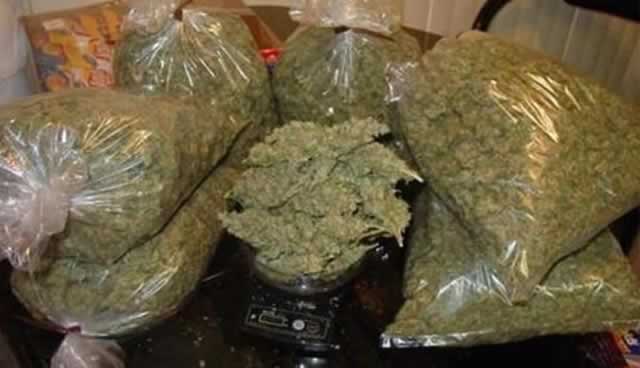Drugs major cause of rise in crime

 Opinion Saul Gwakuba Ndlovu
Opinion Saul Gwakuba Ndlovu
Zimbabwe has lately been experiencing very beastly types of crimes ranging from the rape of babies and elderly women to the murder of elderly parents by their children or grandchildren.In addition to those crimes, suicide cases appear to be increasing especially in the rural areas where rape and murder also seem to be occurring more frequently and more viciously than before.
Causes of those crimes are economic, social and cultural factors. Those of a political nature occur quite often during intensive political campaigns such as during election periods, whether by-elections or general elections.
We are referring here to the incidence of murder and not to that of rape, a crime associated with the reckless consumption of alcoholic beverages and other drugs such as mbanje (insango).
Zimbabwe is going through a critical socio-economic period characterised by a high output of educational products that include university graduates, and a somewhat proportionate rate of not only the annual yield of the educational sector but also to the uncontrolled national population growth.
The level of unemployment is presently estimated at between 90 percent at least and 95 percent at most. That unfortunate situation has generated a great deal of frustration among the employment-seeking age group some of whom resort to drug consumption to escape from reality.
By drugs we mean in this case alcohol and mbanje, the two mostly easily procurable in Zimbabwe. Alcohol is a colourless, volatile, inflammable liquid that is the intoxicating element in beer, spirits and various wines.
Mbanje is hemp that is in effect a narcotic. These two, alcohol and dagga, are addictive drugs whose effects are either hallucinatory or stimulant or both. They have a stupefying effect on the consumer’s mind. That is why a habitual drunkard is usually intolerably stupid, and many times provocatively irritating.
While rapists are by and large people with very little, if any, self-respect, to say nothing about their non-existent respect for other people, those who rape babies are utterly devoid of any normal human feeling, let alone natural parental love.
It can be reasonably assumed that they commit such crimes while they are under the influence of drugs, either alcohol or mbanje or both. Similarly, those who murder their parents do so most likely because they would have consumed drugs, alcohol or mbanje or both.
A lot has been said about witchcraft, and some people have been accused of that highly secret craft. The considered opinion of the writer of this article is that a great deal of exaggeration is associated with most witchcraft stories as well as “belief”.
Some “beliefs” about witchcraft are baseless and completely false. Some are caused by sheer malice.
I have yet to come across anybody who says their parents or whoever is a witch because as evidence, those parents have tried to initiate them, their sons or daughters, into witchcraft.
Lest I am misunderstood, I am not saying witchcraft does not exist. What I am saying is that it is not as prevalent as some people believe.
That apart, hundreds of thousands of young adults presently roam the streets and Zimbabwe’s rural areas seeking employment. Many of them are functionally literate and numerate. They are employable in relative terms.
Some are professionally qualified and had high hopes when they graduated. They have now deeply disillusioned and have resorted to crime to live. They wrongly regard those who advise them not to break the law as enemies at worst or hindrances at least to the material world of their dreams.
Their parents are regarded by them in this terribly distorted light, and must be gotten rid of by either being deserted at best or by physical elimination at worst, hence this high incidence of patricide which is fuelled by drunkenness and the consumption of other types of drugs.
When a suspect is, or suspects are, arrested by police in connection with these atrocious crimes, professional investigations ought to be carried out about the mental condition of the accused at the time of the commission of the crime.
If drugs, whether stimulants, narcotics or hallucinogens, are involved, the suppliers should be traced without any delay.
In quite a number of very serious cases some courts have passed relatively light sentences because, they say, the accused committed the crime while drunk, “under the influence of alcohol” as they put it.
That is a very strong way of justifying irresponsible behaviour, and the consumption of drugs is indeed irresponsible behaviour. Alcohol is a drug, and so its consumption is no less irresponsible behaviour than the consumption of any other drug.
The consequences of the criminal actions of a self-drugged person are actually as unlawful as those of a sober person. Anything less than this is neither reasonable nor justifiable.
So courts that regard the state of being drunk (during the commission of a crime) as a mitigating rather than an aggravating factor are guilty of a travesty of justice, the overall effect of which is the encouragement instead of the deterrence of irresponsible behaviour.
The occurrence rate of rape and murder in Zimbabwe will go down or up with the fall or rise of the consumption of drugs and the availability or otherwise of formal employment.
To those who have not developed drug-taking habit, the advice is that it is very much easier to get into that habit than it is to abandon it.
That is a fact that confirms the statement by the famous Greek philosopher, Socrates, that “one sows a deed and it becomes one’s habit which develops into one’s character, which ends up as one’s fate”.
Saul Gwakuba Ndlovu is a Bulawayo-based journalist. He can be contacted or cell 0734328136 or through email [email protected]











Comments